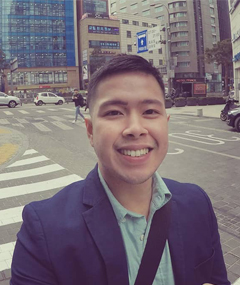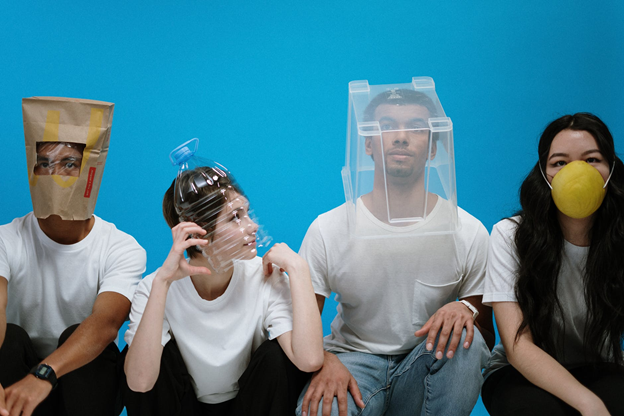The COVID-19 pandemic made an abrupt change in the conduct of our lives as well as within ourselves mentally and emotionally. Contrary to expected belief, It paved the way for a more defined and meaningful personality shift. In a study by PRNewsWire (2021) across 2,000 consumers in the United States, it was found that challenges, circumstances, and changes brought about by the Coronavirus have made people feel smarter, be more open to trying new experiences at a more conscientious level, more agreeable and detached from their relationships.
Notable results were that majority of the respondents or 86% mentioned that they saw a change parallel to at least one of the Big Five personality traits due to the pandemic. Forty percent realized becoming more conscientious, while thirty-eight percent felt being open to new experiences. Surprisingly, even one-third or thirty-three percent of the respondents reported increased agreeableness in these trying times despite moments of constant stress.
The big five personality traits are part of what they call OCEAN traits as an acronym is formed from the different elements:
- Openness to experience manifested by being inventive and curious as opposed to consistent and cautious;
- Conscientiousness manifest by being efficient and organized as opposed to extravagant and careless;
- Extraversion manifested by being outgoing or energetic as opposed to being solitary and reserved;
- Agreeableness manifested by being friendly and compassionate as opposed to being critical and rational;
- and neuroticism.
From these facts, we can infer and determine ways how positive outcomes surfaced amidst the dimming shadow the pandemic shaded atop the world. Life does not always present us with situations that are favorable to us where it is all fun and games but with a bigger and deeper perspective, we can take life as it is and find the fun and purpose in each situation.
These changes in personality transpired from how we also changed our routines and lifestyles to resonate with the requirements of living in the pandemic. Availability of time has led many to resort to various hobbies like reading a book, working on a new skill, make certain lifestyle changes, and stream educational videos. Relatively, in the same study, it was observed that only thirty percent took the pandemic as a distraction from learning continuity or starting learning. The majority or over 58% revealed that social media or streaming media is the repository of information and it is where most curiosities sparked while only twenty percent reported that they spend most of their time watching using the traditional medium television. Seventy percent also had started a hobby lauded on social media as trending. These hobbies include baking sourdough and banana bread then opting to sell them, have found requited love for coffee, and filming themselves for Tiktok videos. Thirty-two percent, however, made use of their time to shop online or disposed of old belongings due to the pandemic. We can quite see a variance in coping mechanisms towards isolation, remote work, and remote learning of different people. These highlighted the fact that the pandemic allowed for more time for ourselves and get in touch with our other side. For many, it was a phase of self-discovery.
Personal relationships with everyone were also tested. Relationships were either filtered, renewed, or rekindled. Quarantining and social distancing took their toll on romance and friendships. It is not overwhelming that the pandemic changed individuals’ approaches to the romantic outlook. Most lovebirds innovated ways on how to relight their romantic fires by turning to dates at home and doing stuff for each other. It was a time for them to show how they care and their concern. All these were because of the liberty provided by time together. However, on the other side lies the negative issues dealt with when the matter of relationship status is talked about. More than a quarter of Americans or 27% also changed their relationship status during the virus outbreak. The prevailing change was break up or divorce by 19% while only a few (9%) proposed or chose to tie the knot. Noticeably, relationships with a friend also are affected. This is obviously because of less communication and interaction happening between them despite the attractive availability of video conferencing platforms, human connection at a personal level is really incomparable. The pandemic also highlighted the role friends play in times of crisis where compassion and altruism need to be practiced but sadly it was not highly observed.
If you analyze it, these effects are somewhat contradictory and paradoxical in nature. People felt lonely despite being connected online. We say we are bored but had the time to try new hobbies. Many believed that learning is not possible being away from conventional classrooms schools but we are at home and in fact, smarter at home. We became smarter from fake news and misinformation by identifying what is right and wrong based on our previous experiences, judgment, and morals. We became more responsive to social issues and have gained interest in knowing the facts more than ever. Communication has been the resolution to somehow realize the normal.
We have certainly learned and sought band-aid fixes to embrace a new culture and environment that is ever-developing and rotating. The world itself shrunk and everything became smaller and minute. This only proves how small we are in the grand scheme of things. This big threat to the world allowed us to see a silver lining in small things. This change that happened within our lifetime has made us feel connected to each other in a way that only ourselves individually know — to trust each other, trust that we are okay, and trust that we are doing our best. We learned how to trust our relationships and have made us value things and people we neglected or generally did not before the outbreak.
Therefore, the pandemic’s role is for us to find more reasons to be grateful and be more appreciative about everything that surrounds us. It also forces us to be charitable and remain in our humane form, our truest and most authentic self because after all, we are just a dot in the universe.
 Author bio: Bash Sarmiento is a writer and an educator from Manila. He writes laconic pieces in the education, lifestyle, and health realms. His academic background and extensive experience in teaching, textbook evaluation, business management, and traveling are translated into his works.
Author bio: Bash Sarmiento is a writer and an educator from Manila. He writes laconic pieces in the education, lifestyle, and health realms. His academic background and extensive experience in teaching, textbook evaluation, business management, and traveling are translated into his works.
Links:




Leave Comment